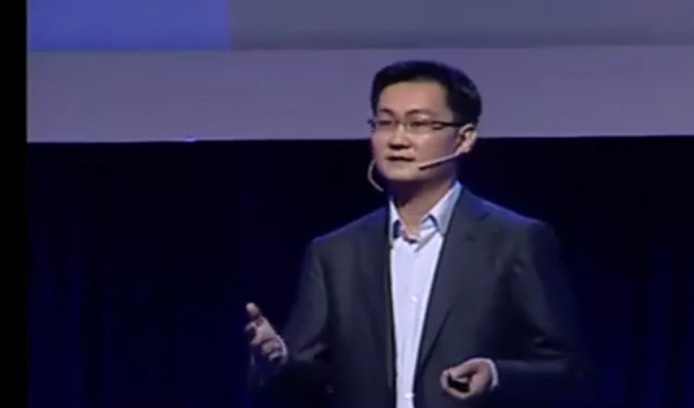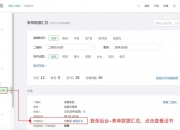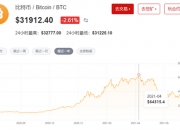
4月22日消息,据悉,腾讯将推出互联网产业经济趋势新书《产业区块链》,腾讯董事会主席兼首席执行官马化腾为该书撰写了序文。
On 22 April, it was reported that a new book on economic trends in the Internet industry, the Industrial Block Chain, was to be launched and that the President and Chief Executive Officer of the Board of Directors and Executive Officer of the Board of Directors had written a preface to the book.
马化腾在序言中写到,“区块链借助密码学、共识算法和分布式存储等技术,组合出一种新的数据共享方式,通过数据的公开透明、不可篡改与集体维护等措施,让整个系统降低了信息不对称,从而促成新的信任机制”。他认为,这将有助于“数据”更合理地流动和配置,为经济和社会提供服务。
In its preamble, Matilten wrote that “the block chain, using technologies such as cryptography, consensus algorithms and distributed storage, combines a new way of sharing data, allowing the entire system to reduce information asymmetries and thus promote new mechanisms of trust through measures such as open transparency, non-false change and collective maintenance of data.” In his view, this would contribute to a more rational flow and configuration of “data” to serve the economy and society.
“过去一年,我们看到,除了更多人‘上网’,越来越多的企业‘上云’,还有一些业务与产品开始尝试‘上链’。”马化腾表示,特别是,今年经历了新冠病毒疫情的防控战,中央把加快推进“新基建”提到新的高度。区块链与云计算、5G通信、人工智能等信息技术正在有机地融合起来,共同构成数字经济和智慧社会的重要基础设施。
“As we have seen over the past year, in addition to more people ‘on the Internet’ and more businesses ‘on the clouds’, a number of businesses and products are beginning to try to ‘uplink’.” The Matilten states, in particular, that this year has experienced a battle against the new coronary virus epidemic, which has brought to the centre a new height the acceleration of “new infrastructure.” Block chains and information technology such as cloud computing, 5G communications, artificial intelligence, etc. are being organically integrated to form an important infrastructure for the digital economy and intelligent society.
但与此同时,马化腾也指出,区块链技术远未发展到成熟阶段,且存在着许多有挑战性的问题,等待着人们去解决。
At the same time, however, Matilten has pointed out that block chain technology is far from mature and that there are many challenging issues that await resolution.
据《电商报》了解,腾讯自2015年起开始关注区块链技术并进行自主研发,目前已在电子发票、供应链金融、数字内容保护、产品溯源防伪、医疗处方流转、司法存证、公益寻人等领域展开布局。
According to the Telemarketer, since 2015, Tetsu has been focusing on block chain technology and has been developing it autonomously. It is currently being laid out in the areas of electronic invoicing, supply chain finance, digital content protection, product traceability, medical prescriptions, judicial documentation and public-interest searchers.
以下为马化腾在《产业区块链》新书序言部分全文:
reads as follows: in the preamble to the new book Industrial Block Chain:
区块链全面拥抱产业互联网
The block chain embraces the industry Internet in its entirety.
经过五十年发展,互联网从少数学者的“玩具”,逐渐变为全球数十亿人日常生活与工作不可或缺的“工具”。中国互联网的发展更为迅猛,仅仅二十多年时间,我们的网民从无到有,目前已超过八亿,并成功实现了PC互联网向移动互联网的跨越。
After 50 years of development, the Internet has evolved from the “toys” of a few scholars to the “tools” indispensable for the daily lives and work of billions of people around the world. China’s Internet has grown even more rapidly, with more than two decades of non-existent and now more than 800 million people, and has successfully crossed the PC to mobile Internet.
最近十年,越来越多的人,从过去找固定地方和时间“上网”,变成随时随地“在线”。正如我们手机的像素越来越高,物理世界在数字世界的映射,颗粒度也越来越细。互联网为我们展开的数字世界,正变得越来越丰富和庞大,并且开始对物理世界产生越来越大的影响。今天,我们的互联网服务不仅仅要满足个人用户的日常生活需求,更要逐渐满足包括工业制造企业在内的商业机构和大量公共部门的日常工作需要,从消费互联网发展到产业互联网。
In the last decade, more and more people have gone from finding fixed places and times to “online” at any time or place. Just as the pixels of our mobile phones are getting higher, the physical world is mapping the digital world, and the particle sizes are getting thinner. The digital world that the Internet offers us is becoming richer and larger, and is beginning to have a growing impact on the physical world. Today, our Internet service is not just about meeting the daily needs of individual users, but also about gradually meeting the day-to-day needs of commercial institutions, including industrial manufacturing enterprises, and of a large number of public sectors, from consuming the Internet to industrial Internet.
在这个过程中,我们发现,产业互联网不单单指过去常用的信息资源网络。我们至少还需要,随时随地可弹性处理海量大数据的计算资源网络,以及促成深度共享协作的信任资源网络。这也是为什么像早期的互联网一样,大家对云计算和区块链寄予如此巨大的期望。
In doing so, we find that the industry’s Internet is not just a network of information resources that used to be used in the past. We also need, at the very least, a network of computing resources that can easily handle large amounts of data at any time and anywhere, as well as a network of trust resources that enable deep-sharing and collaboration.
区块链借助密码学、共识算法和分布式存储等技术,组合出一种新的数据共享方式,通过数据的公开透明、不可篡改与集体维护等措施,让整个系统降低了信息不对称,从而促成新的信任机制。这有助于“数据”这种新的生产要素更合理地流动和配置,以服务于经济和社会。同时,区块链解决这一系列问题的技术架构和独特方案,正在给数字化转型升级中的各行各业带来创新和启发。
Through technologies such as cryptology, consensus algorithms, and distributed storage, the block chain combines a new way of sharing data, allowing the system to reduce information asymmetries through measures such as open transparency of data, non-false change and collective maintenance, thus contributing to new trust mechanisms. This helps “data” – a new production element that moves and is configured more rationally to serve the economy and society.
过去一年,我们看到,除了更多人“上网”,越来越多的企业“上云”,还有一些业务与产品开始尝试“上链”。2019年10月,中央强调要把区块链作为核心技术自主创新重要突破口,加快推动区块链技术和产业创新发展。今天的区块链有望从“比特币”的光环中走出,远离狂热的炒作,从脚踏实地的谷底起步,开始攀爬产业互联网的长坡。特别是,经历新冠病毒疫情的狙击战,中央把加快推进“新基建”提到新的高度。区块链与云计算、5G通信、人工智能等信息技术正在有机地融合起来,共同构成数字经济和智慧社会的重要基础设施。这些新型基础设施,势必深刻地影响和重塑我们的经济金融组织和社会治理模式。
Over the past year, we have seen an increase in the number of people “connecting to the Internet” and businesses and products starting to try to “upper the chain.” In October 2019, central emphasis was placed on the block chain as an important entry point for core technological innovation, accelerating technological and industrial innovation in the block chain. Today’s block chain is expected to emerge from the “bitcoin” halo, far from fanatical frenzy, from the bottom of the valley on the ground, starting to climb the long slopes of the industry’s Internet.
腾讯早在2015年就开始区块链领域的研究和探索。几年来,我们在电子发票、供应链金融、数字内容保护、产品溯源防伪、医疗处方流转、司法存证、公益寻人等领域有广泛的应用尝试。特别是,2018年在税务部门的主导和推动下,深圳开出了中国首张区块链电子发票,并展开区块链电子发票的试点推广。截至今年2月,基于腾讯底层技术和能力的这一区块链电子发票试点,已经广泛扩展到金融保险、零售商超、酒店餐饮、互联网服务等上百个行业,累计注册1.5万户企业,开票超过1600万张。普通用户在商家消费时,就能通过微信支付生成或直接扫码生成区块链电子发票。既节省了消费者和商家的大量时间精力,也有效解决了发票“真假难验”、“一票多报”等管理难题。
In particular, in 2018, Shenzhen opened China’s first block chain electronic invoice and launched a pilot extension of the block chain electronic invoice. As of February of this year, the digital invoice pilot, based on the technology and capabilities of the bottom of the tether, has been extended to a wide range of hundreds of industries, such as financial insurance, retailers’ excesses, hotel restaurants, Internet services, etc., with a cumulative register of 15,000 businesses, with more than 16 million tickets opened.
我们也看到,区块链技术远未发展到成熟阶段,有大量富有挑战性的问题有待解决。《产业区块链》尝试探讨了目前区块链技术在全球的发展趋势和各个产业落地应用的可能性,这些内容与其说是过往尝试的总结,不如说是未来探索的开始。
We have also seen that block chain technology is far from mature and that there are a number of challenging issues to be resolved. The Industrial Block Chain has tried to explore the current global trends in block chain technology and the potential for industrial landings, which are more of a summation of past attempts than a beginning of future exploration.
注册有任何问题请添加 微信:MVIP619 拉你进入群

打开微信扫一扫
添加客服
进入交流群



















发表评论